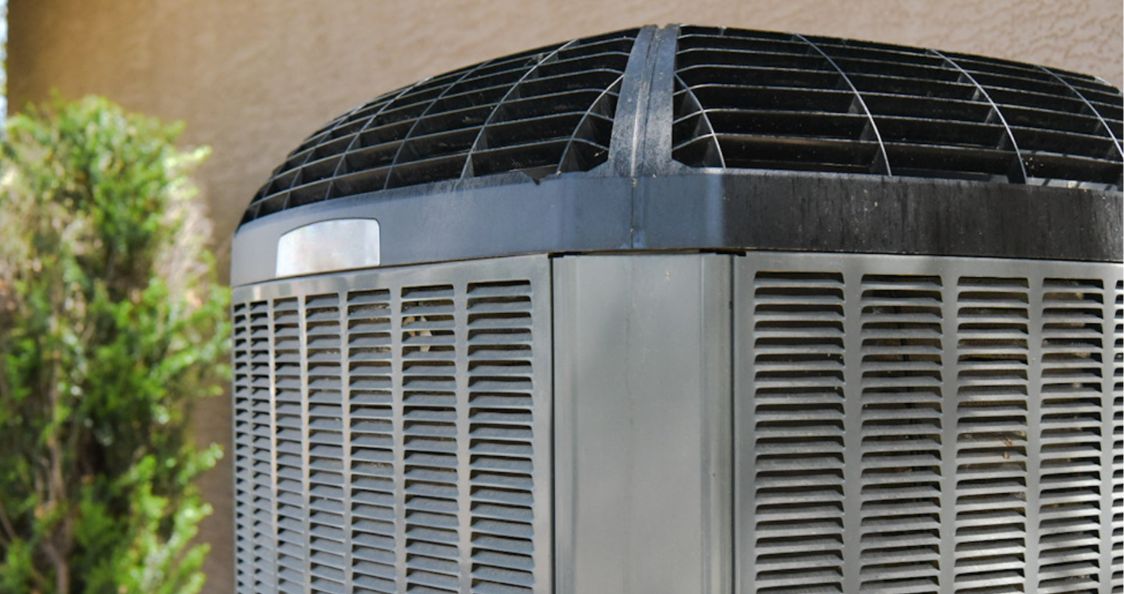Many prefer the endless summer days over the gloomy winter days, but the heat in California can get a bit much. During these scorching moments, many residents find refuge in their air-conditioned homes. However, AC usage in California is less widespread than in other states, with 72% of households having AC equipment and only 54% using central AC systems.
Some Californians might not recognize the signs that their AC needs attention or even total replacement. When your AC starts acting up, you need to decide between AC replacement vs. repair, and the right choice can impact your comfort and finances.
In today’s guide, we’ll examine the advantages and disadvantages of replacement and repair to help you make the right decision. We’ll explain the key considerations and teach you how to assess your AC’s condition. Let’s weigh the costs and benefits of each option and determine the best course of action for your home’s cooling needs.
Common Signs Your AC Needs Attention
Most air conditioning systems don’t suddenly stop working without warning. They typically display signs of trouble before a complete breakdown occurs. As a homeowner, recognizing these signs can help address issues early, potentially saving money and preventing discomfort.
Performance Issues
If you’re experiencing inconsistent cooling in different parts of your home, your AC might need some maintenance. If you find some rooms colder than others or persistent hot spots, this might indicate a problem with your AC system. The reason may be:
- Bad airflow
- Low refrigerant levels
- Ductwork issues
Another performance-related sign is an unexpected rise in your energy bills. In California, the average energy bill is $123.67. If you notice this number rising without a corresponding increase in usage, your AC probably works overtime to maintain the temperature.
Unusual Noises and Smells
A hissing sound might indicate a refrigerant leak while banging or clanking noises could suggest loose or damaged parts inside the system. Squealing sounds often point to belt issues, and rattling might mean something has come loose within the unit.
Unusual odors are another red flag. A musty smell could indicate mold growth in your system or ductwork, which is bad for your health. A burning smell might suggest electrical problems, which require immediate attention. If you notice a sweet or chemical odor, it could be a sign of a refrigerant leak, which is both environmentally harmful and detrimental to your AC’s performance.
Age of the Unit
Most air conditioning systems have a lifespan of 10 to 20 years, depending on how often they are used and how they are maintained. Towards the end of this range, you may experience more frequent breakdowns or reduced efficiency.
Once your AC unit hits the ten-year mark, it’s time to explore replacement options. Newer models generally outperform older units in energy efficiency, even if the old unit still functions. As AC technology advances, newer models offer improved features and better performance.
Pros and Cons of AC Repair
If your AC unit is less than 10 years old and doesn’t experience frequent breakdowns, opting for repairs is often the most practical choice. Regular maintenance and professional repairs can extend your AC’s operational life by several years. This approach allows you to maximize your initial investment in the system while avoiding the substantial cost of a complete replacement.
Advantages of Repairing
One of the primary benefits of repairing your AC is cost-effectiveness. Repairs are usually significantly less expensive than purchasing and installing a new system. This is especially true when dealing with a minor issue or a budget that doesn’t allow for a complete replacement.
Repairing your AC also has the potential to extend its lifespan. Many AC problems, when addressed promptly, don’t necessarily signify the end of the unit’s life. A skilled AC technician can:
- Resolve most mechanical issues.
- Restore your AC to proper functioning.
- Allow you to get more years of use out of your current system.
Disadvantages of Repairing
While repairs are cost-effective short-term solutions, they sometimes result in temporary fixes that lead to recurring issues. This is especially true if you’re dealing with an older unit or one with systemic problems and find yourself calling the repair man every few months, which is frustrating.
Repairing instead of replacing might seem like a cost-saving measure now, but it could lead to higher expenses in the future. If your AC requires multiple repairs over a short period, the cumulative cost could eventually exceed the price of a new unit. Additionally, older or frequently repaired units often operate less efficiently and spike up energy bills. In such cases, continuing to repair an aging or problematic AC costs you more than a new system.
Pros and Cons of AC Replacement
If you have an older AC and frequently find yourself trying to fix something that’s not working properly or calling the experts more often than you’d like, it might be time to say goodbye to it. Here’s how you can decide if the benefits of replacement outweigh the costs.
Advantages of Replacement
Replacing your air conditioning unit with a new one promises improved energy efficiency. Newer models often operate significantly better than older units and can even lower your energy bills. If you’ve noticed that your monthly energy costs have been creeping up, a new unit could help you save some money over time.
Modern air conditioning systems have advanced technology, such as smart thermostats that enable remotely control of your home’s temperature. Improved air filtration is another feature found in newer units, which can improve indoor air quality. If allergies or respiratory issues are a concern, a new AC system can make a noticeable difference in your home’s air.
Disadvantages of Replacement
On the flip side, the upfront cost is one of the main drawbacks of replacing your AC unit. Purchasing a new system requires a significant financial investment compared to repairing an existing one. Depending on your budget, this initial expense may not be feasible.
Another consideration is the installation process, which can disrupt your daily routine. Dealing with contractors coming in and out of your home can be inconvenient, especially when juggling work or family obligations.
Consulting a Professional
Consulting a technician is vital when weighing your options for repairing or replacing your air conditioning unit. A qualified professional can evaluate your system and provide insights you may not have considered. During the assessment, expect:
- A thorough diagnostic check.
- Examination of the unit’s performance, age, and efficiency.
- Assessment of existing issues.
- Identifying potential future problems.
This will help you make your decision quickly. You will receive recommendations based on the unit’s condition, including repair options or investment suggestions for a new system. Knowing the costs associated with each option will also help you budget appropriately.
Get Expert Help For Your AC Dilemmas in Sacramento
Deciding whether to repair your current AC unit or invest in a new one involves carefully considering several factors, including your budget and convenience. If you’re unsure which option is best for you, the AC specialists at Clarke and Rush in Sacramento, California, are ready to assist.
Our team offers routine maintenance, repairs, and complete AC replacements. We will evaluate your system and provide clear guidance tailored to your needs. Don’t let uncertainty hold you back from achieving the comfort you deserve in your home. Reach out today to discuss your options and schedule an appointment.







